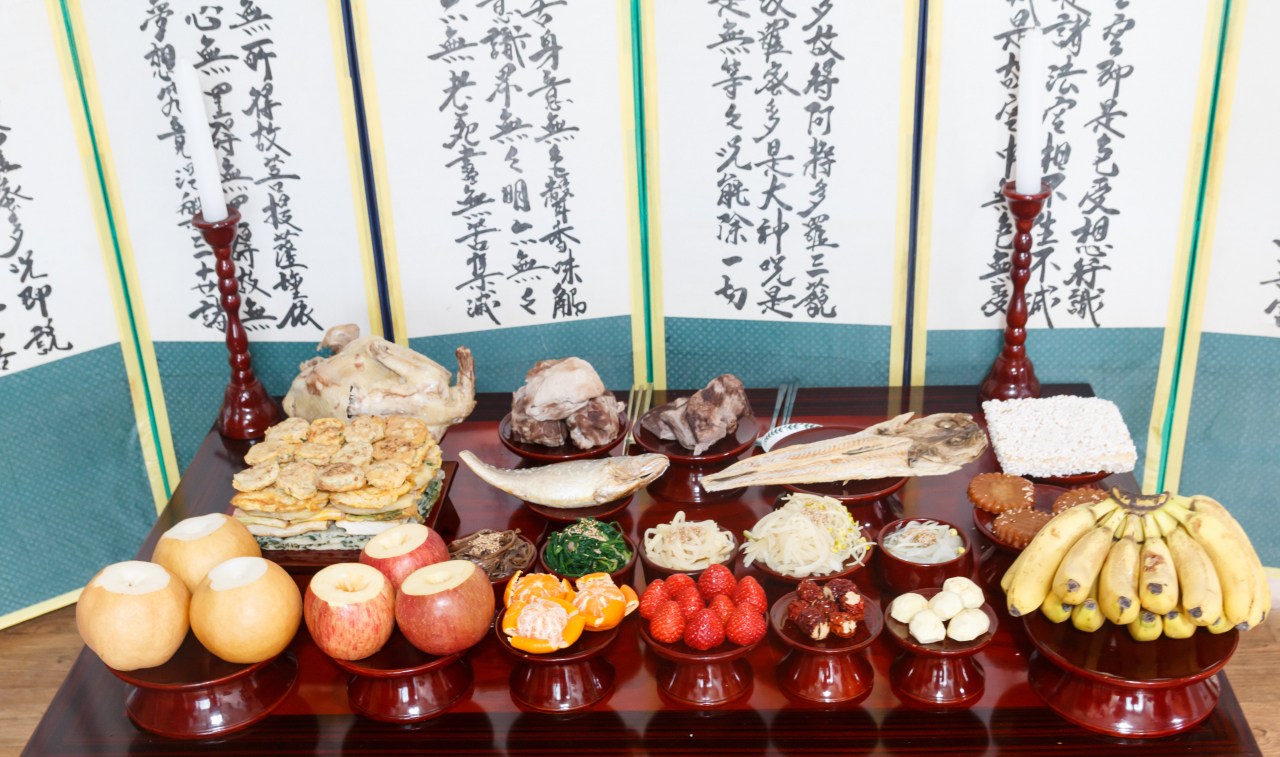
As an increasing number of Koreans are ditching traditional rituals to honor their ancestors, an authority on the rites on Thursday said it is OK to put fried chicken and ramen on the jesa table.
A committee that settles ceremonial issues under the Confucian educational institute Sung Kyun Kwan reduced the minimum number of items on the jesa table from the previous 15 to eight in its latest set of guidelines meant to simplify the jesa menu.
Following up on its recommendation last year that jeon -- fried pancakes with meat, fish or vegetables -- is not compulsory, the committee said families can reduce or change the number of food items to place what the deceased actually liked.
According to the standardized guideline of Sung Kyun Kwan, the basic food items on a jesa table include rice, soup, wine, fruit, namul (seasoned vegetables), nabak kimchi (water kimchi with sliced radish squares), soy sauce, jeotgal (salted seafood), sikhye (sweet rice beverage) and po (dried fish).
"Jujagarye," a 12th-century book on Confucian rituals written by Chinese scholar Zhu Xi and introduced to Korea during the Goryeo Kingdom, states that 17 different dishes, including rice, noodles, meat, fish, rice cakes, fruit and vegetables, should be placed on the jesa table.
Sung Kyun Kwan said those who do not have ceremonial utensils can just use regular bowls and dishes, and can put all the fruits on one plate.
Citing a Supreme Court ruling in May, the authority said women can also host jesa, and advised that not just women, but the entire family should prepare the ritual food together.
Even if parents have departed on different dates, they can be remembered through a joint ritual, and the scripted prayers read during jesa can be written in Hangeul, instead of Hanja, or Chinese characters, Sung Kyun Kwan said, adding that non-Koreans can also take part in the rituals.
By rule, jesa is supposed to be held late at night after 11 p.m. on the deceased's death anniversary, but it can be held in the early hours of the evening upon agreement among the family.
“The point of jesa lies in doing it from the heart, with love and respect,” said Choi Young-gap, chief of the committee, adding that it’s fine to prepare a simple meal with food that the deceased liked on the jesa table, or to set it out like the person's birthday.
The committee noted, however, that the recommendations are for regular households, and do not apply to the rituals held by Confucian scholars.
A recent poll of 1,500 Koreans by Sung Kyun Kwan showed that while 62.2 percent of the respondents still perform jesa, 55.9 percent are considering discontinuing the practice in the future.




















